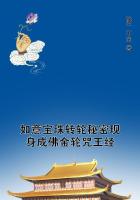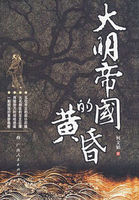The White Mulberry Tree
The French Church, properly the Church of Sainte-Agnes, stood upon a hill. The high, nar-row, red-brick building, with its tall steeple and steep roof, could be seen for miles across the wheatfields, though the little town of Sainte-Agnes was completely hidden away at the foot of the hill. The church looked powerful and triumphant there on its eminence, so high above the rest of the landscape, with miles of warm color lying at its feet, and by its position and setting it reminded one of some of the churches built long ago in the wheat-lands of middle France.
Late one June afternoon Alexandra Bergson was driving along one of the many roads that led through the rich French farming country to the big church. The sunlight was shining di-rectly in her face, and there was a blaze of light all about the red church on the hill. Beside Alexandra lounged a strikingly exotic figure in a tall Mexican hat, a silk sash, and a black vel-vet jacket sewn with silver buttons. Emil had returned only the night before, and his sister was so proud of him that she decided at once to take him up to the church supper, and to make him wear the Mexican costume he had brought home in his trunk. "All the girls who have stands are going to wear fancy costumes,"she argued, "and some of the boys. Marie is going to tell fortunes, and she sent to Omaha for a Bohemian dress her father brought back from a visit to the old country. If you wear those clothes, they will all be pleased. And you must take your guitar. Everybody ought to do what they can to help along, and we have never done much. We are not a talented family."The supper was to be at six o'clock, in the basement of the church, and afterward there would be a fair, with charades and an auction.
Alexandra had set out from home early, leaving the house to Signa and Nelse Jensen, who were to be married next week. Signa had shyly asked to have the wedding put off until Emil came home.
Alexandra was well satisfied with her brother.
As they drove through the rolling French coun-try toward the westering sun and the stalwart church, she was thinking of that time long ago when she and Emil drove back from the river valley to the still unconquered Divide. Yes, she told herself, it had been worth while; both Emil and the country had become what she had hoped. Out of her father's children there was one who was fit to cope with the world, who had not been tied to the plow, and who had a per-sonality apart from the soil. And that, she reflected, was what she had worked for. She felt well satisfied with her life.
When they reached the church, a score of teams were hitched in front of the basement doors that opened from the hillside upon the sanded terrace, where the boys wrestled and had jumping-matches. Amedee Chevalier, a proud father of one week, rushed out and embraced Emil. Amedee was an only son,--hence he was a very rich young man,--but he meant to have twenty children himself, like his uncle Xavier. "Oh, Emil," he cried, hugging his old friend rapturously, "why ain't you been up to see my boy? You come to-morrow, sure?
Emil, you wanna get a boy right off! It's the greatest thing ever! No, no, no! Angel not sick at all. Everything just fine. That boy he come into this world laughin', and he been laughin'
ever since. You come an' see!" He pounded Emil's ribs to emphasize each announcement.
Emil caught his arms. "Stop, Amedee.
You're knocking the wind out of me. I brought him cups and spoons and blankets and mocca-sins enough for an orphan asylum. I'm awful glad it's a boy, sure enough!"The young men crowded round Emil to ad-
mire his costume and to tell him in a breath everything that had happened since he went away. Emil had more friends up here in the French country than down on Norway Creek.
The French and Bohemian boys were spirited and jolly, liked variety, and were as much pre-disposed to favor anything new as the Scandi-navian boys were to reject it. The Norwegian and Swedish lads were much more self-centred, apt to be egotistical and jealous. They were cautious and reserved with Emil because he had been away to college, and were prepared to take him down if he should try to put on airs with them. The French boys liked a bit of swagger, and they were always delighted to hear about anything new: new clothes, new games, new songs, new dances. Now they car-ried Emil off to show him the club room they had just fitted up over the post-office, down in the village. They ran down the hill in a drove, all laughing and chattering at once, some in French, some in English.
Alexandra went into the cool, whitewashed basement where the women were setting the tables. Marie was standing on a chair, building a little tent of shawls where she was to tell fortunes. She sprang down and ran toward Alexandra, stopping short and looking at her in disappointment. Alexandra nodded to her encouragingly.
"Oh, he will be here, Marie. The boys have taken him off to show him something. You won't know him. He is a man now, sure enough.
I have no boy left. He smokes terrible-smelling Mexican cigarettes and talks Spanish. How pretty you look, child. Where did you get those beautiful earrings?""They belonged to father's mother. He always promised them to me. He sent them with the dress and said I could keep them."Marie wore a short red skirt of stoutly woven cloth, a white bodice and kirtle, a yellow silk turban wound low over her brown curls, and long coral pendants in her ears. Her ears had been pierced against a piece of cork by her great-aunt when she was seven years old. In those germless days she had worn bits of broom-straw, plucked from the common sweeping-
broom, in the lobes until the holes were healed and ready for little gold rings.
When Emil came back from the village, he lingered outside on the terrace with the boys.
Marie could hear him talking and strumming on his guitar while Raoul Marcel sang falsetto.
She was vexed with him for staying out there.















